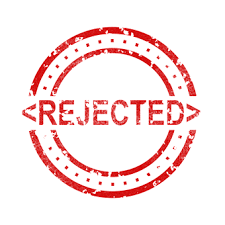
The Most Critical Issues And Year Of Patenting
I’m in the final stages of developing and researching my product which I want to have a global market. It has taken me years from experimentation, prototyping and market research before I decided that I was finally making a business out of my invention/product.
One of the most important knowledge an inventor, product developer or whatever you want to call yourself as you try to invent a new product is the patent law. This is because you want compensation for the time, money and other things you sacrificed in order to invent.
If you are happy inventing something and just want to give it out free to the world, you don’t need to be concerned about patent laws. But most inventors want financial compensation for their invention, and only a patent can seriously make this possible.
If you think that patenting is as simple as finding the money to pay a patent attorney or an agent to file your patent for you, think again. The patenting process is intertwined with your business strategy. Failing to plan your patenting strategy can mean failure in business as well.
A WORD OF CAUTION
 Let me tell you first that I’m not a duly registered patent attorney or agent. As I have said, I’m still in the process of finalizing my prototyping and business research regarding my invention. This means that this information would only be very useful for beginners.
Let me tell you first that I’m not a duly registered patent attorney or agent. As I have said, I’m still in the process of finalizing my prototyping and business research regarding my invention. This means that this information would only be very useful for beginners.
When I mean beginners, I mean people who are near the final stages of working in perfecting their invention in their labs or workshops and still does not have a business infrastructure for their products.
Your invention may be well past the experimentation and proof of concept phase and you may have the final prototype already being built. You may also have conducted your market research based on information you find online.
Take note that this article was designed for a budding one person startup who is probably working on their home. This article is not meant for large companies who have their own legal and marketing departments.
This article is for a person who had an idea, experimented and researched if it can become a business, and finally decided to develop this into a physical product that they will bring out to the world where it would attract not only business concerns, but social and legal concerns as well.
DISCUSS YOUR IDEA, BUT KEEP THE DETAILS A SECRET
 There would be patent attorneys and agents who would tell you that any information you divulge about your idea could result in your patent rights being forfeited. I don’t know if these patent attorneys and agents know this, but I believe they make budding inventors lose sleep.
There would be patent attorneys and agents who would tell you that any information you divulge about your idea could result in your patent rights being forfeited. I don’t know if these patent attorneys and agents know this, but I believe they make budding inventors lose sleep.
This has certainly been my case. Many inventors cannot develop their inventions by themselves alone and need help from other people. No matter how smart an inventor is, there comes a point when they would need the expertise of someone else.
And this is where many budding inventors fumble. They ask themselves: “How can I discuss my invention, but keep it a secret as well so that I don’t lose patenting rights?” Fortunately, a kind patent attorney informed me that there are three things I should prevent.
The patent attorney told me that if ever I performed a Public Disclosure, Public Use and a Offer For Sale of my invention, I could potentially lose my patentability rights. Before you as a beginner inventor/product developer lose sleep too, let me explain:
1. PUBLIC DISCLOSURE
 Let us first begin by analyzing the word “Public”. In terms of patent law, it is any person besides you. Even if you told about your invention to your spouse only or to your mother only, it still counts as public disclosure.
Let us first begin by analyzing the word “Public”. In terms of patent law, it is any person besides you. Even if you told about your invention to your spouse only or to your mother only, it still counts as public disclosure.
Of course, many inventors tell their spouse, parents, children and anyone close to them about their invention, but a wise inventor would also tell the people they told about their invention that they should keep the invention a secret.
According to the patent attorney I spoke to, there is such a word as ”Implied Confidentiality”. This basically means that the law decides if the inventor has taken confidentiality measures before they divulge their invention to anyone.
This can be proven in court by “Non-Disclosure Agreements” or “Confidentiality Agreements”. These are legal contracts which basically prohibits people from divulging any information given to them.
Take note that any electronic, printed or oral information that is available to the public is considered by the law as public disclosure. E-mails, speeches, experiment results and even a casual discussion at any public place is considered public disclosure.
IT MUST BE “ENABLING”
 If the government’s patent law seems draconian to you that you think that unless you keep the idea or invention to yourself you won’t be able to patent it, don’t despair. The government gives a narrow breathing space for inventors.
If the government’s patent law seems draconian to you that you think that unless you keep the idea or invention to yourself you won’t be able to patent it, don’t despair. The government gives a narrow breathing space for inventors.
Based on what the patent attorney has told me and in my own online research about US, China and European patent laws, an inventor can divulge a few details of their invention as long as it is not “Enabling”.
What does “enabling” mean? This basically means that as long as a person does not divulge their invention is such a way that a “Person Ordinarily Skilled In The Arts” can recreate their invention or process, the inventor can still patent their idea.
Take note that a “person ordinarily skilled in the arts” can be anyone. For example, if an inventor has a mechanical invention and discusses it to a hobbyist car mechanic with no formal training, this hobbyist can be interpreted by the law as a person ordinarily skilled in the arts.
The patent attorney for example told me that it was safe for me to discuss only the benefits of my invention and nothing else to potential investors. This is because I have not divulged any information to potential investors which is enough for them to duplicate my invention or process.
2. PUBLIC USE
 This is a more obvious form of public disclosure. This involves displaying your physical experiments, prototypes whether working or not, and maybe the final product itself without first applying for a patent.
This is a more obvious form of public disclosure. This involves displaying your physical experiments, prototypes whether working or not, and maybe the final product itself without first applying for a patent.
The governments of some countries like China and India though do allow an inventor to discuss their invention in a convention for example or to a group of technical peers as long as the inventor gets an approval first from the government.
Another leeway which the law of China provides is that an invention can be publicly divulged as long as the public is unable to duplicate or recreate the invention. This means that in China and maybe in some other countries, displaying your invention with limitation can be allowable.
For example, in China you invent a machine that turns ordinary dust to gold dust. As long as the process in how the machine does this is not known, for example by hiding the machine in a covered box, you can display your machine without losing patent rights.
Public use is a very contentious issue in patent law. I have seen online articles and videos discussing why for example some public use is allowed in the US and UK while others are not. I suggest you check with the local laws in your country.
3. OFFER FOR SALE
 This is again another issue where China and the US differ. If ever you are interested in filing a patent in both of these countries, you should consider the differences in how the governments of both countries treat an offer for sale.
This is again another issue where China and the US differ. If ever you are interested in filing a patent in both of these countries, you should consider the differences in how the governments of both countries treat an offer for sale.
As the name of the term suggests, an offer for sale is a communication where the inventor acts as a seller and communicates with potential buyers of their invention. In the US, it does not matter if the communication between the inventor and buyer is private.
It doesn’t even help the inventor even if non-disclosure agreements have been signed. As long as an offer for sale has been communicated before an application for patent has been filed, the invention is no longer patentable.
In China, an offer for sale will not bar an inventor from getting a patent as long as the sale is private and especially non-disclosure agreements have been filed. In essence, it might seem that patenting in China is more conducive to the inventor’s business.
But what constitutes an offer for sale? According to US patent laws, an offer for sale follows the rule for commercial contracts. This means an offer for sale must have a product price, product quantity and other sales terms.
WHAT CANNOT BE PATENTED
 In some countries, items related to medicine, machines that cure people, biological materials and so on cannot be patented. If you are an inventor and considering an invention that you would sell globally, you should know first if your invention can be patented globally.
In some countries, items related to medicine, machines that cure people, biological materials and so on cannot be patented. If you are an inventor and considering an invention that you would sell globally, you should know first if your invention can be patented globally.
In the US, medical inventions can be patented but not in such countries as China and India. I think this especially applies to startup pharmaceutical companies whose product development budgets are constrained.
Another thing which cannot be patented are inventions that contravene public morals and good. But what exactly constitutes public morals and good? Are sex products and weapons considered non-patentable in some countries or even in your country alone?
It should be noted that sex products and weapons are one of the most profitable products anywhere in the world and you might be thrilled with the prospects of earning a lot of money with your invention, but study first your local patent laws to see if your invention is allowable.
ONE YEAR BEFORE MARKETS ARE LOST
 Let’s assume that you have filed for a patent and already have a Patent Pending badge on your products. Is your patenting problem solved already? Do you now just concentrate on selling your invention which has now become a product?
Let’s assume that you have filed for a patent and already have a Patent Pending badge on your products. Is your patenting problem solved already? Do you now just concentrate on selling your invention which has now become a product?
The resounding answer is “No” if you want to market your product globally. It doesn’t matter if you have filed a non-provisional patent or a provisional patent only. As soon as you file any patent application, the clock for filing international patent starts.
I believe that in all countries, you are required to file an international patent before one year has elapsed from the time you have filed any local patents. To anyone who has done any sort of international business, one year is a very short time.
This is especially true during our current global situation where travel restrictions apply especially for international travel in many countries. One cannot simply jump on a plane and travel to nearly 200 countries to conduct business with potential foreign partners.
One also has to consider the cost of filing international patents. Filing patents for each of the nearly 200 countries in the world would amount to over a million US dollars. In a sense, you have to be selective of the countries you file in. Can you decide within one year?
A PCT IS NOT ALL ENCOMPASSING
 You might say that one should just file a PCT (Paris Cooperation Treaty) and extend the deadline of the internal patent application by as much as 18 months. This might be a sound strategy but you must consider that the PCT is no all encompassing.
You might say that one should just file a PCT (Paris Cooperation Treaty) and extend the deadline of the internal patent application by as much as 18 months. This might be a sound strategy but you must consider that the PCT is no all encompassing.
This means that not all countries for some reason or another are not included in the PCT like Taiwan which is an important manufacturing based country. Imagine realizing one day that your invention/product is being mass produced in Taiwan and there’s nothing you can do about it.
CONCLUSION
 In my quest to find answers on the patenting questions that are in my mind I have turned to the internet where I usually get non-direct answers unless I specifically ask or look for them myself. Preventing loss of patentability through public disclosure or use and offer for sale should be well known by any inventor/product developer before they make patenting mistakes.
In my quest to find answers on the patenting questions that are in my mind I have turned to the internet where I usually get non-direct answers unless I specifically ask or look for them myself. Preventing loss of patentability through public disclosure or use and offer for sale should be well known by any inventor/product developer before they make patenting mistakes.
One should also not forget that at most, one has only one year before they have to file international patents in the foreign countries they want to establish patent protection with. That is why it’s best to prepare one’s move during this one year and even earlier to ensure this one year is not wasted.
You might also like to read the article:

From Idea to Prototype
I have tried inventing almost full-time an idea of mine about a mechanical machine that when attached to other machines doubles the force they can apply. I searched online if similar ideas/inventions already exists especially the database of patented inventions to know if my idea is unique and who are my potential competitors. I also researched to know if my idea is worth…